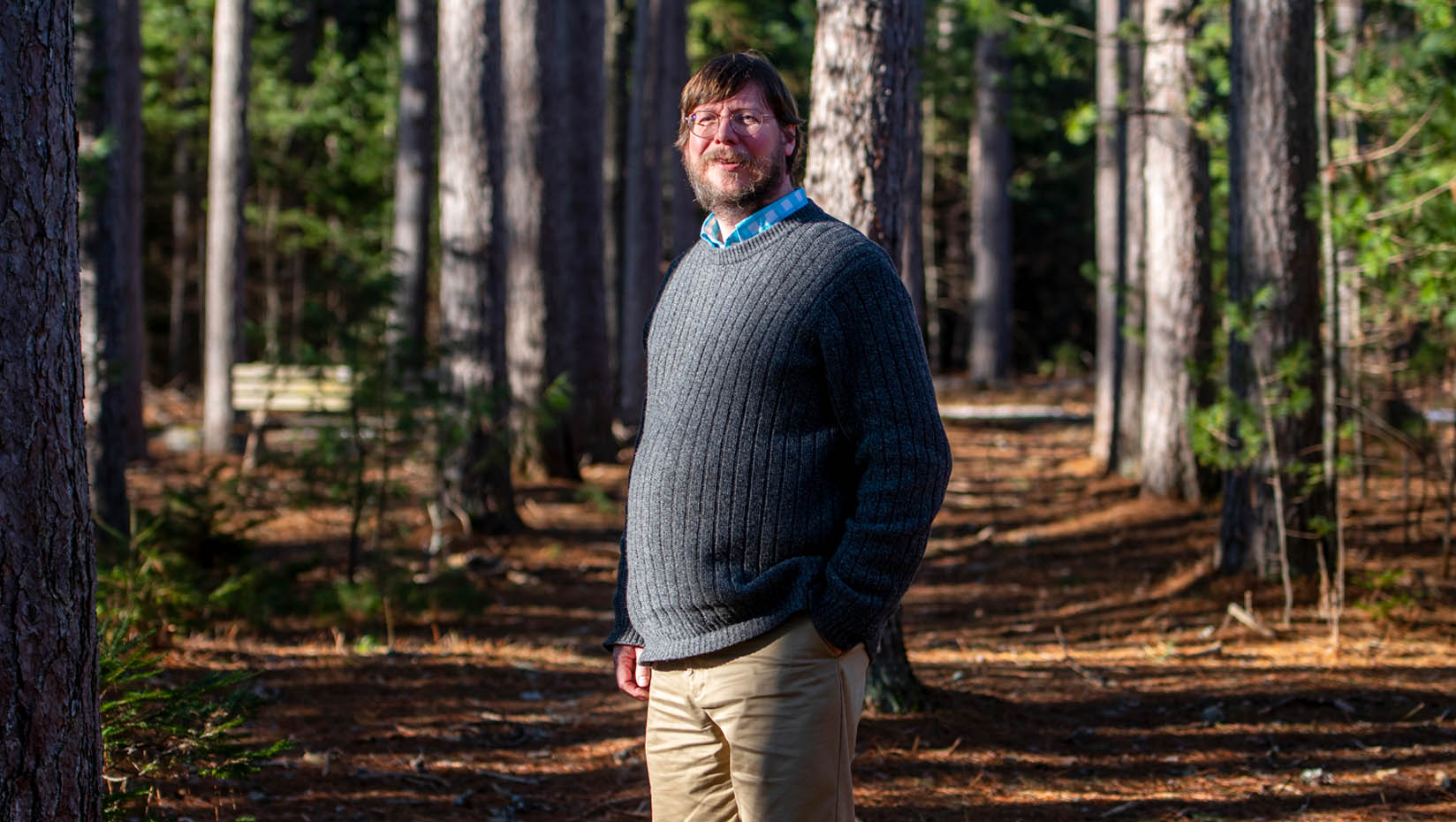
McGill named one of the most cited researchers in the world for second consecutive year
For the second consecutive year, University of Maine professor of biological sciences Brian McGill, whose research focuses on modeling large-scale ecology and global change, has been named one of the most cited researchers worldwide, according to Clarivate.
The company’s 2020 Highly Cited Researchers list identifies researchers who produced multiple scientific papers ranking in the top 1% by citations for their field and year of publication, demonstrating significant influence among their peers. Highly Cited Researchers make up just 0.1% of all researchers.
The 2020 Highly Cited Researchers list of 6,167 “identifies and celebrates exceptional individual researchers who are having a great impact on the research community as measured by the rate at which their work is being cited by others,” according to Clarivate, a global leader in providing solutions to accelerate innovation. The organization’s Web of Science citation index, which it uses to create the list, provides “the largest publisher-neutral citation index and research intelligence platform.”
Among those on the 2020 list are 26 Nobel laureates and other researchers from more than 60 nations. McGill is one of 2,650 researchers from the United States, accounting for the largest percentage — 41.5% — of the 2020 list.
The full list of Highly Cited Researchers for 2020 is online.
McGill’s accolade follows his inclusion in the organization’s 2019 Highly Cited Researchers list.
Since 2003, McGill had 117 publications cited a total of 9,622 times. The top three: “Rebuilding community ecology from functional traits,” for which he was first author, published in 2006 in “Trends in Ecology and Evolution” (cited 2,223 times); “The return of the variance: intraspecific variability in community ecology,” published in 2012 in “Trends in Ecology and Evolution” (cited 723 times); and “Species abundance distributions and moving beyond single prediction theories to integration within an ecological framework,” for which he also was first author, published in 2007 in “Ecology Letters” (cited 714 times).
The UMaine professor has been published in a total of 46 journals, including Nature, Science, Global Change Biology and the Proceedings of the National Academy of Sciences.
McGill has been a faculty member in the UMaine School of Biology and Ecology since 2010. He holds a joint appointment in the Mitchell Center for Sustainability Solutions and a cooperating appointment in the Climate Change Institute.
In his research, McGill studies biodiversity at large scales — large areas of space, long periods of time and across many species — that are critical to addressing conservation and management questions. Goals include developing the ability to predict how species ranges will respond to climate change, and measuring the impact of humans on community structure.
Contact: Marcus Wolf, 207.581.3721; marcus.wolf@maine.edu
